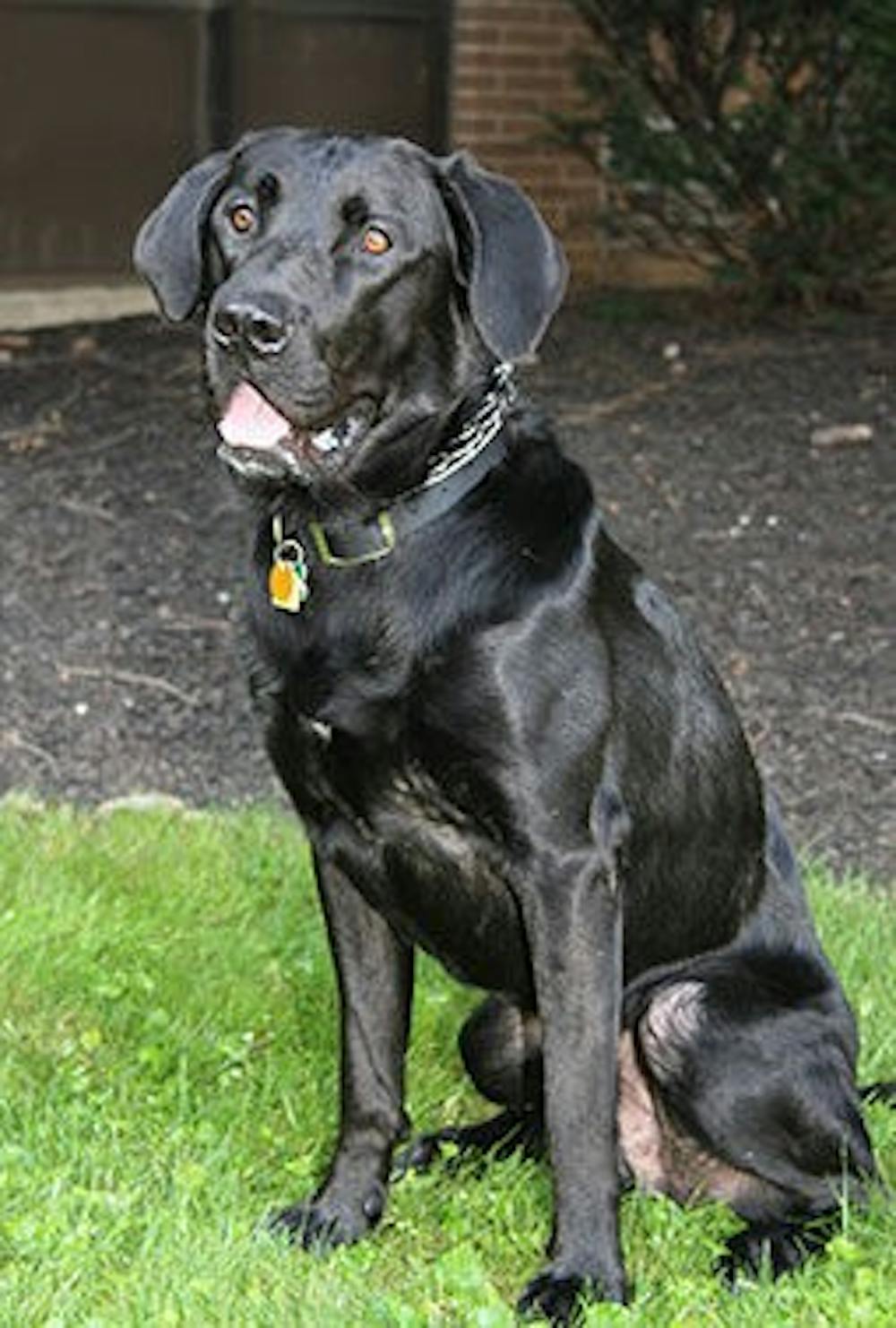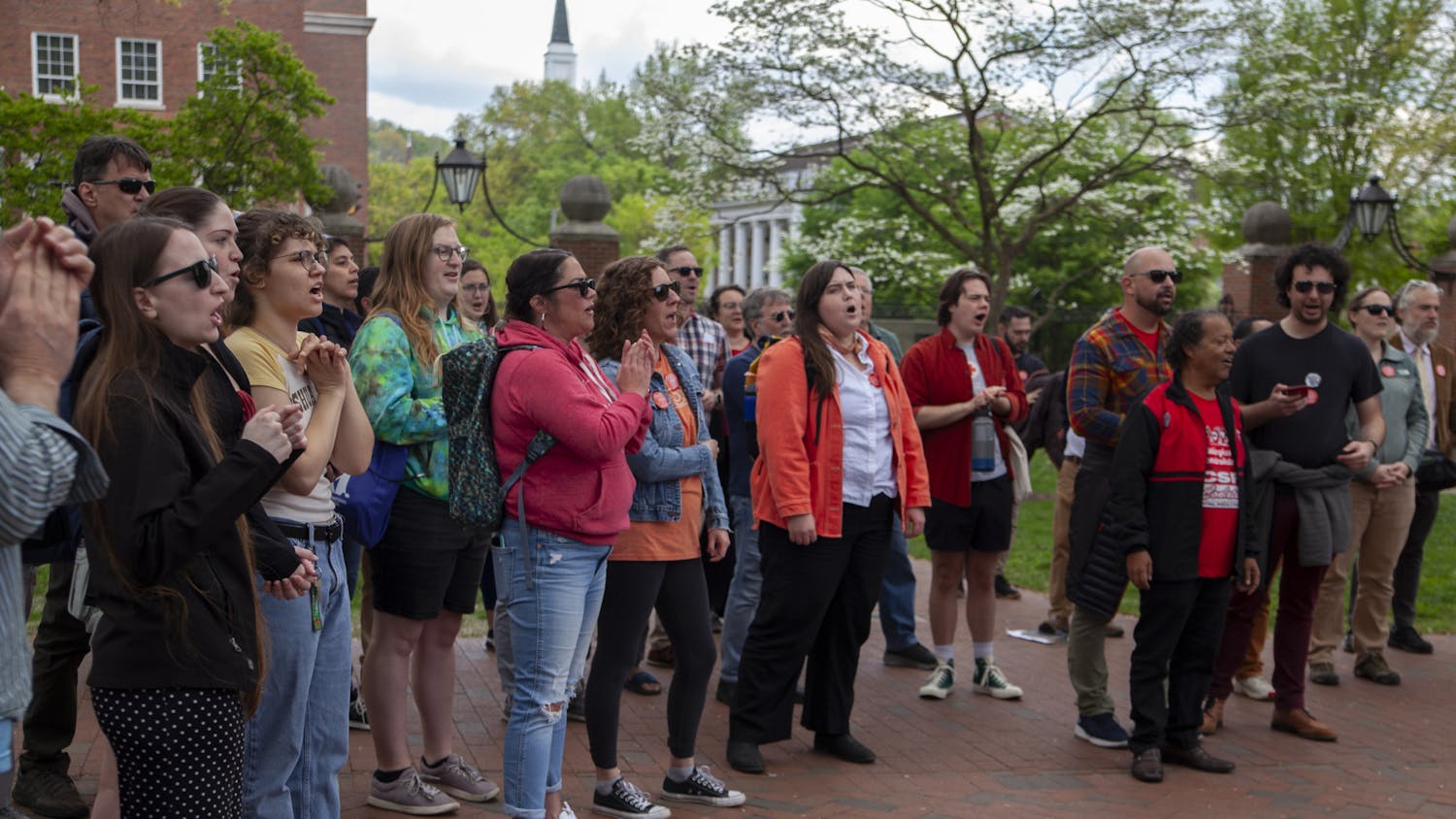From rescue dog to explosive detection canine, Alex the labrador joins OUPD’s taskforce.
The Ohio University Police Department has a new recruit undergoing weeks of rigorous training so he can help officers find bombs. He is also furry and walks on four legs.
Alex, a year-and-a-half old rescued labrador retriever mix, will soon be OUPD’s first explosive-detection canine, and the only dog in southeastern Ohio capable of detecting bombs.
The bomb-sniffing dog is part of OUPD’s effort to enhance security on campus, especially at large events. Funding for the explosion-detection canine program was provided through a reimbursement grant by the U.S. Department of Homeland Security, which was approved during the fall semester of 2013, according to a previous Post report.
OU Police Chief Andrew Powers said the grant was worth about $28,000 — $8,000 of which is for the acquisition of the dog and his training.
OUPD also bought a new car to transport the dog. The $21,500 Dodge Charger is equipped with a dog cage, window tints and an auto door opener.
Alex and his handler, Officer Tim Woodyard, are currently in a 10-week training program with the Columbus Fire Department’s Bomb Squad K9 unit, which offers its services to about 36 counties in Ohio. Training with the handler began in early August.
Labrador police dogs have a “high drive,” good endurance and stamina compared to other breeds, said Kari Lindberg, a canine handler at the Columbus Fire Department Bomb Squad.
Labradors are also friendly and don’t appear intimidating, she added, making them more suitable around large crowds. But despite their assets, Lindberg said, there is still is a lot of work for the handler and his or her dog.
“You have a partner that doesn’t speak English,” Lindberg said. “It takes a year or a year and a half to really get good.”
Woodyard said mutual trust would be an important factor between him and his dog to ensure they work efficiently during an assignment.
Although OUPD will soon have a bomb-sniffing dog of its own, Powers said the department still plans on getting assistance from other agencies — specifically the Columbus Fire Department and Ohio State Fire Marshal’s Office — for big events such as home football games at Peden Stadium.
“What we will be able to do better by ourselves is smaller events,” Powers said. “This also means we have a dog closer by to respond to bomb threats or calls … emergencies and stuff that is unplanned.”
Powers also said his department has agreed to provide bomb-detecting services to festivals and other events in Southeast Ohio in exchange for the program’s grant.
Woodyard said he’s had to learn a lot at his training in Columbus, adding that it includes learning search patterns, proper handling and how to recognize if the dog has found an explosive.
“It might be work to me, but for (Alex), it’s play time,” Woodyard said. “Me and him have bonded quite well. I couldn’t ask for a better dog.”
@Joshualim93
JL951613@ohio.edu






